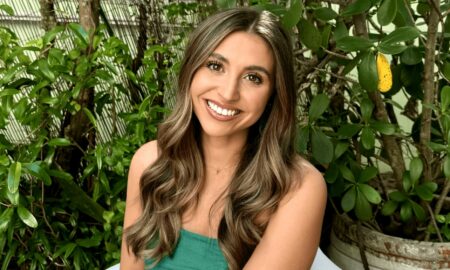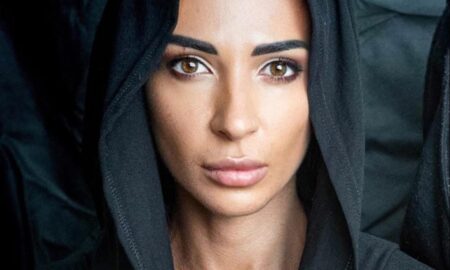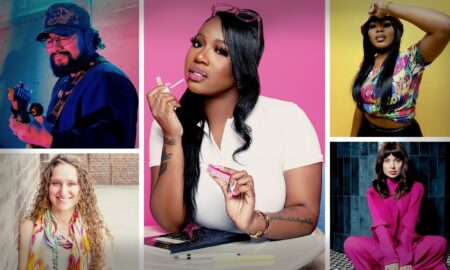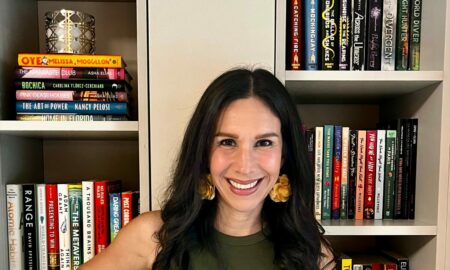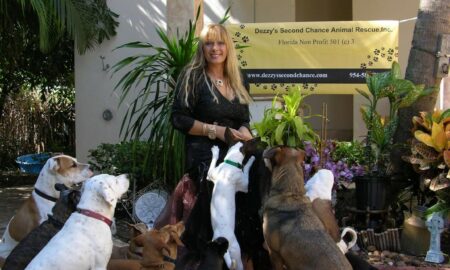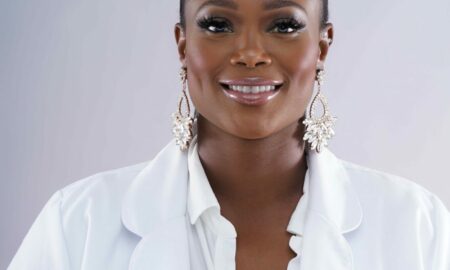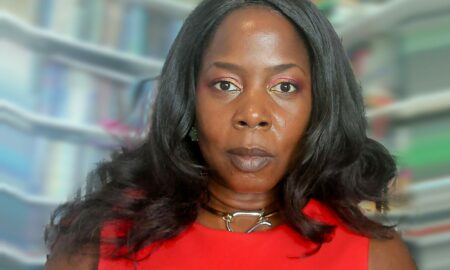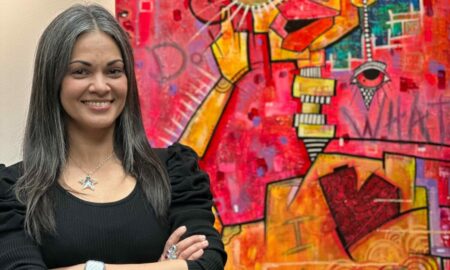 Today we’d like to introduce you to Asmae Fahmy.
Today we’d like to introduce you to Asmae Fahmy.
Asmae, let’s start with your story. We’d love to hear how you got started and how the journey has been so far.
I grew up between the pages of books and always found solace in stories. I began writing when I was really young, starting with poetry, songwriting, and storytelling.
In high school, I got into journalism. I was lucky to have an incredible newspaper advisor, Kurt Panton, who encouraged me to translate my passion for writing fiction to real-world events. My parents are both Egyptian, and when I visited Egypt the summer after the 2011 revolution, he inspired me to create a documentary on the aftereffects of that revolution. I remember walking around the country with my out-dated camera and my faulty Arabic and approaching strangers on the streets and asking them to tell me their stories. And it was then that I knew that this what I wanted to do: cover stories through the lens of the people they affected, take my words and try to make them matter. The revolution stole most headlines, but the aftereffects of riots, unrest, and instability were rarely touched upon. Telling that story through the people who lived it set the template for what I wanted to do for the rest of my life.
And from there, it all kind of just fell together; not always perfectly, but I think exactly the way it was supposed to. I became editor-in-chief of my high school newspaper and then enrolled at the University of Miami to study Journalism and Psychology. There, I joined their lifestyle magazine, Distraction Magazine, as a section editor, and their newspaper, The Miami Hurricane, as a copy editor. I can’t tell you how many times journalism saved my life during that period. It brought me out of my shell, forced me to break down the walls and write even when it was the last thing I wanted to do. During my senior year of college, I became editor-in-chief of Distraction Magazine. I had the most incredible time pouring all my passions into one outlet. My core team and I threw everything we had into that magazine and it was honestly the best experience of my life. I got to write about sea-level rise, the Syrian refugee crisis, and all the human rights and environmental issues I wanted to cover. I got to design, organize photoshoots, and build something I was truly proud of. The magazine won hundreds of awards that year ranked first in America, and truly carved a spot in my heart forever.
After that, I wanted to engross myself in the culture that inspired my love for journalism in the first place, so I moved to Egypt to absorb as much as possible and write about it all. Now, I’m a medical journalist for Verywell Health, where I’ve had the opportunity to bring the COVID-19 headlines back to the people they refer to and tell the stories behind the statistics.
Overall, has it been relatively smooth? If not, what were some of the struggles along the way?
Oh, countless. The overarching one would probably be my self-diagnosed imposter syndrome, which has managed to challenge and undermine every achievement, title, and award I’ve ever received in my life. I know many writers are plagued by this, so I’m at least in good company, but there’s never a day that goes by where I can’t shake the feeling that I’m not good enough and don’t deserve to be here. I don’t know if that feeling ever goes away, but it’s something I’m trying to slowly remedy. Sometimes I’ll look at my resume and think, “Is that really me?” Or I’ll stare at the flickering line on an empty Word document and be too afraid to write out of the fear that the words I create will never be good enough.
Then there’s also the health stuff, which is funny, because I interview countless patients each week about their own ailments, yet I have such a hard time publicly addressing my own. I now realize how brave they are for broadcasting such personal stories to the world. Anyways, suffice it to say that when I was in Egypt, I started exhibiting debilitating symptoms that went misdiagnosed for eight months. I was in indescribable pain; chock-full of the wrong medications that came with their own stream of side effects and petrified that I would never get better. Thankfully, when I moved back to America, I was able to obtain a proper diagnosis and find treatment, but even that took me a while and wiped out a year of my life. While that path hasn’t necessarily been easy, being my own “doctor” for eight months paved the way for my passion for medicine and helped me tailor my career towards medical journalism. It also helps me commiserate with the patients I interview for my job, allowing me to be more compassionate and understanding, and always willing to truly listen and do their stories justice. And I think those are probably the most important qualities for a journalist to have.
We’d love to hear more about your work.
I’m currently a freelance journalist, but I write for Verywell Health, and I absolutely love it. I have an amazing editor who lets me delve into subject matters that are sometimes more daring or controversial, but incredibly rewarding. It’s a rare opportunity to cover medicine in the midst of a pandemic, and it’s a job I absolutely adore because it allows me to interview brilliant scientists and doctors weekly and talk to so many brave people who have been touched by COVID-19 in one way or another.
Any shoutouts? Who else deserves credit in this story – who has played a meaningful role?
My biggest mentor and cheerleader is my grandfather: Mahmoud Ali Fahmy, or gedo, as I always called him. He was a brilliant and successful writer in Egypt who believed in me since I was seven years old; before I even understood or knew what it meant to be a writer. He would sit with me for hours and push me to write my silly stories, telling me he would translate and publish them in Egypt. He was my best friend and biggest advocate, and I owe so much of who I am to him. Unfortunately, he passed away in 2011, before he ever got to see me “succeed” in journalism. Still, I bring every magazine or newspaper that I’ve been published in with me to Egypt and leave them on his nightstand; the same place I left my stories for him when I was seven.
Throughout my career, I’ve had the honor of having amazing newspaper and magazine advisors: Kurt Panton and Randy Stano, who always pushed me to be the best version of myself. In college, my core team in Distraction Magazine served as both my biggest inspiration and my best friends. I can’t thank them enough for loving that magazine as much as I did and pushing through the endless late-night deadlines with me. They are Valentina and Celeste Escotet (two of the most creative, driven, and talented people I know – they can create actual art out of dust), Allie Pakrosnis (who quite literally bleeds talent out of her fingertips – please look up her cheese and wasabi typography), Jamie Shub (an incredibly beautiful and driven designer), Marissa Vonesh (one of the smartest journalists I’ve ever met), Sidney Sherman (who has heaven-sent photography skills), and Olivia Stauber (a true creative genius). I also can’t thank my mentors enough: Rori Kotch and Lexi Williams, who for some crazy reason believed in me and trusted me to fill in their shoes, and who are beyond brilliant, talented, and inspiring in their own right.
Contact Info:
- Website: https://www.asmaefahmy.com/
- Phone: 3059153135
- Email: asmaefahm3@gmail.com
- Instagram: https://www.instagram.com/writtenbymae/








Suggest a story: VoyageMIA is built on recommendations from the community; it’s how we uncover hidden gems, so if you or someone you know deserves recognition please let us know here.










